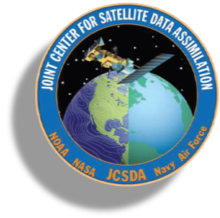Please join JCSDA in hosting Yann Michel from Meteo-France this Friday, August 9. Yann wil be presenting in UCAR's FL2-1022 Large Auditorium from 11:00 AM to 12:00 PM MDT.
The seminar will be webcast via this link, and will be recorded/posted to this page (along with the slides) after the talk commences.
Click here to access the presentation slides.
Click here to access a recording of the presentation.
Abstract:
Recent progress on assimilation methods at Meteo France
Y. Michel, O. Guillet, M. Destouches, CNRM, Meteo-France and CNRS.
Meteo France as a NWP center is facing common problem in advancing data assimilation methods. In particular, Meteo-France is on the way of transitioning its global and limited area systems towards ensemble variational scheme, with traditional issues such as the localization or the sensitivity to ensemble size and resolution. In this talk, I will cover two different subjects that have been tackled by PhD students recently and that address two challenges of modern data assimilation.
The first subject is the representation of correlated observation errors. Today, the assimilation of dense observations is hampered by the fact that, for algorithmic reasons, we take the associated covariance matrix to be diagonal. We propose a method that aims to model directly the inverse covariance matrix by using the diffusion equation. To account for the lack of spatial structure of certain observations, the discretization uses the finite elements method. The scheme is able to efficiently represent correlation of the Matérn family. Numerical experiments illustrate the potential and limitations of the method on cloud cleared MSG SEVIRI data, with operational implementation envisioned in the future years.
The second subject investigates whether hydrometeor initialization can substantially improve short-term forecasting at convective scale. As regards the 3D fields of rain, cloud water, ice crystals, rain and graupel (hydrometeor fields), several barriers make their initialization a sensitive issue: strong non-linearity of observation operators, strong non-Gaussianity of model errors, spatial discontinuity and positivity of the variables. We start our investigations by comparing experiments by the convective-scale model AROME-France in a 3DEnVar framework with and without hydrometeor initialization. The improvement in forecast skill for precipitation and cloud cover is then respectively assessed by comparisons with ground based precipitation observations as well as by the SEVIRI imager onboard the MSG geostationary satellite. Further improvement could be expected from variable-dependent localization or non-linear change of variables.
